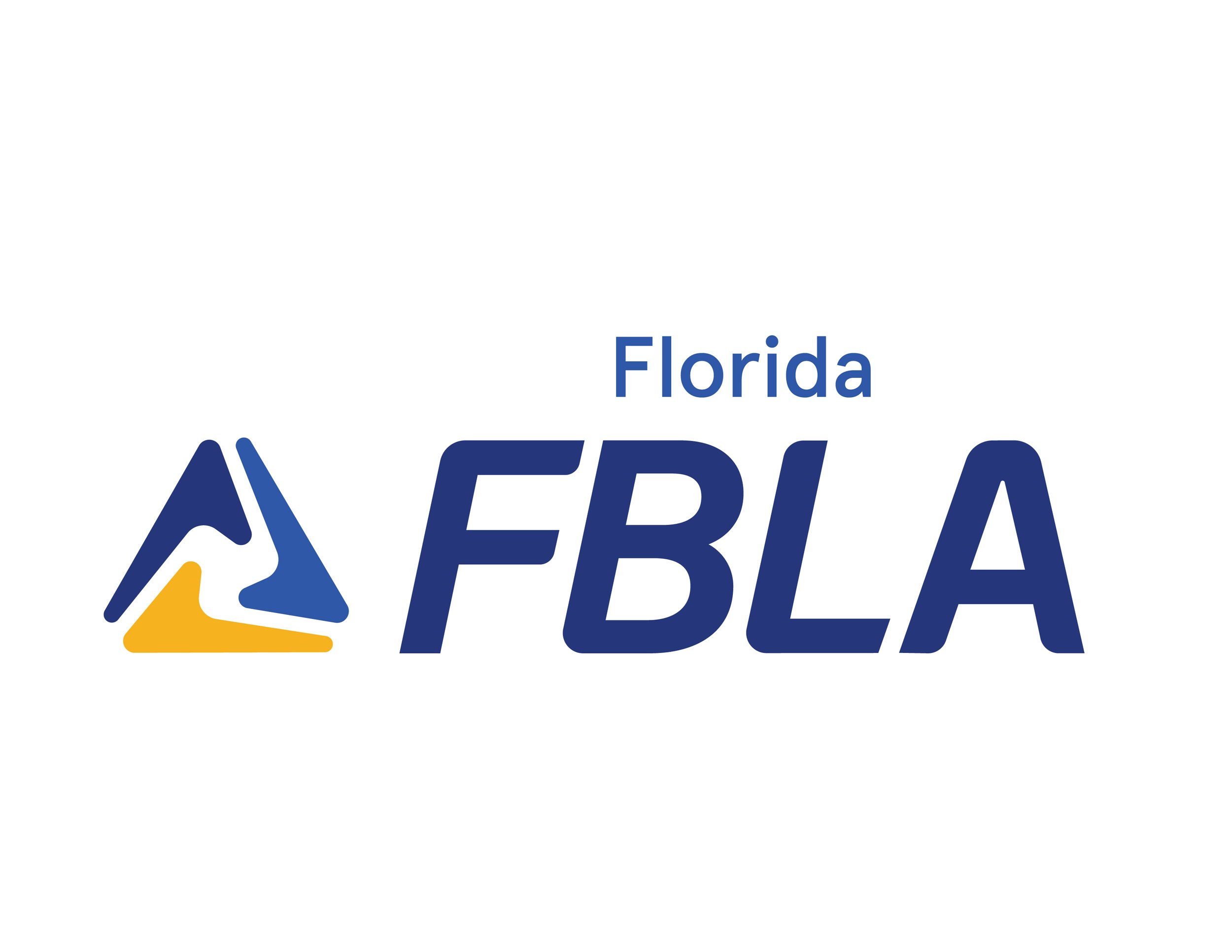Ms – Exploring COMPUTER SCIENCE
Exploring Computer Science challenges members to demonstrate their understanding of foundational concepts in computing through an objective test. This event introduces members to key areas such as hardware, software, algorithms, and computational thinking.
Event Overview
Division: Middle School
Event Type: Individual
Event Category: Objective Test, 50-multiple choice questions (breakdown of question by competencies below)
Objective Test Time: 30 minutes
Career Cluster Framework Connection: Digital Technology
NACE Connections: Career & Self-Development, Technology
Items Competitor Must Provide: Sharpened Pencil, Conference-provided nametag, Attire that meets the Florida FBLA Dress Code
Competencies
· Coding Basics
· Algorithmic Thinking
· Data and Artificial Intelligence Concepts
· Cybersecurity Concepts
· Networks and the Internet
· Hardware and Systems Concepts
Test questions are based on the knowledge areas and objectives outlined for this event. Detailed objectives can be found in the study guide included in these guidelines.
District
Check with your District Leader for district-specific competition information.
State
Eligibility
· FBLA membership dues are paid by 11:59 pm Eastern Time on December 1 (or earlier date specified by the District Director) of the current school year.
· Members may compete in an event at the State Leadership Conference (SLC) more than once if they have not previously placed in the top ten of that event at the National Leadership Conference (NLC). If a member places in the top ten of an event at NLC, they are no longer eligible to compete in that event.
· Members must be registered for the SLC and pay the state conference registration fee in order to participate in competitive events.
· Members must stay within the official FBLA housing block of the official FBLA hotel in order to compete.
· Each district may be represented by participant(s) based on the Florida FBLA scaled quota system found on the Florida FBLA website.
· Each competitor can only compete in one individual/team event and one chapter event (Annual Activities, Community Service Project).
· Each competitor must compete in all parts of an event for award eligibility.
· If competitors are late for an objective test, they may be disqualified or permitted to begin late with no extension of the time as scheduled.
· Participants must adhere to the Florida FBLA dress code established by the Florida Board of Directors or they will not be permitted participate in the competitive event.
Recognition
· The number of competitors will determine the number of winners. The maximum number of winners for each competitive event is 5.
Event Administration
· Test duration: 30 minutes
· This event is an objective test administered at the SLC.
· No reference or study materials may be brought to the testing site.
· No calculators may be brought into the testing site.
Tie Breaker
· Ties are broken by comparing the correct number of answers to the last 10 questions on the test. If a tie remains, answers to the last 20 questions on the test will be reviewed to determine the winner. If a tie remains, the competitor who completed the test in a shorter amount of time will place higher.
· Results announced at the National Leadership Conference are considered official and will not be changed after the conclusion of the National Leadership Conference.
Americans with Disabilities Act (ADA)
· FBLA complies with the Americans with Disabilities Act (ADA) by providing reasonable accommodations for competitors. Accommodation requests must be submitted through the conference registration system by the official registration deadline. All requests will be reviewed, and additional documentation may be required to determine eligibility and appropriate support.
Penalty Points
· Competitors may be disqualified if they violate the Competitive Event Guidelines or the Honor Code.
Electronic Devices
· Unless approved as part of a documented accommodation, all cell phones, watches, electronic devices, and headphones must be turned off and stored away before the competition begins. Visible devices during the event will be considered a violation of the FBLA Honor Code.
National
If you are competing on the National level, be sure to see National guidelines at https://www.fbla.org/divisions/fbla-middle-level/competitive-events/
Study Guide: Competencies and Tasks
Coding Basics (10 test items)
1. Describe basic programming elements (e.g., variables, loops, conditionals)
2. Describe the parts of a function call
3. Predict the output of a function given its definition and input
4. Trace the value of variables through a program
5. Distinguish between runtime and compile-time errors
Algorithmic Thinking (10 test items)
1. Identify basic search algorithms (e.g., linear, binary, two-pointers)
2. Identify basic sorting algorithms (e.g., bubble sort, heap sort, merge sort)
3. Distinguish between common data structures (e.g., lists, arrays, sets, queues)
4. Describe a solution to a problem as a series of simple steps
Data and Artificial Intelligence Concepts (10 test items)
1. Describe modern uses of AI (e.g., chatbots, LLMs, autonomous vehicles)
2. Describe basic applications of AI concepts (e.g., image processing, perception, game playing)
3. Discuss the use of datasets for training and refining AI models
4. Describe the uses of datasets for research, analysis, and business decisions
5. Explain how relational databases are structured (e.g., tables, keys, relationships)
Cybersecurity Concepts (5 test items)
1. Describe the dangers of unprotected information (e.g., identify theft, scams, doxing)
2. Identify common scams and attacks (e.g., phishing, scam emails, viruses)
3. Describe the importance and use of common digital security measures (e.g., strong passwords, password managers, multi-factor authentication, antivirus)
4. Describe common network security measures (e.g., firewalls, antivirus, permissions and account management)
Networks and the Internet (5 test items)
1. Describe networks and their relevance to the modern internet
2. Describe the importance of networking protocols for communication and security
3. Identify common networking protocols (e.g., TCP/IP, UDP, SNMP)
4. Identify internet connection equipment for a home or small office
Hardware and Systems Concepts (10 test items)
1. Describe computer components (e.g., CPU, motherboard, GPU)
2. Describe operating system responsibilities
3. Translate between binary and decimal number representations
4. Describe how computer hardware and software interact to process instructions
